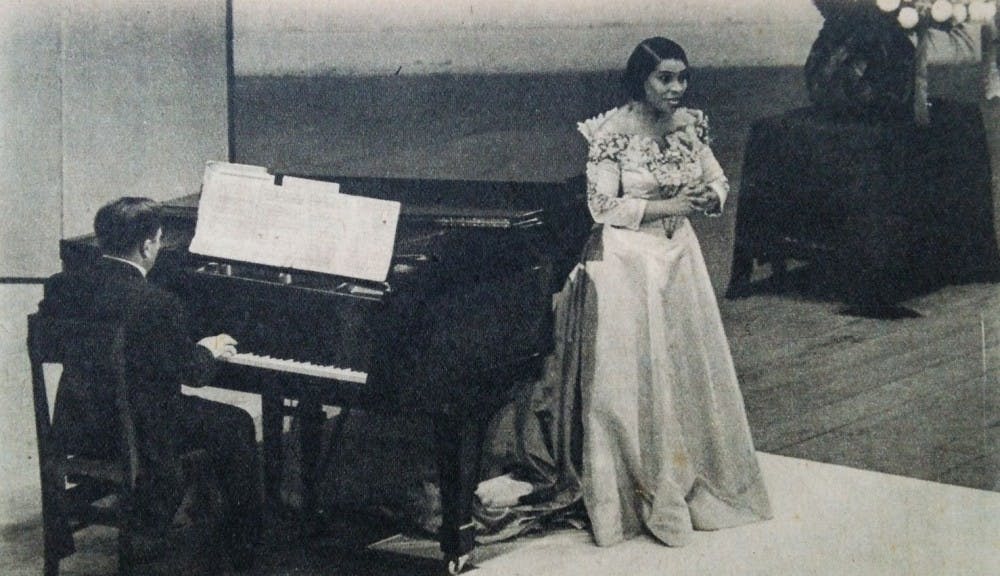Penn Libraries is launching a famous donor and Philadelphia icon back onto the world-stage.
Penn Libraries received a year-long grant to digitize some of its Marian Anderson collection. This project will include 1,200 performance programs, 146 personal diaries, 34 scrapbooks, 34 transcriptions from interviews for her autobiography, and 277 hours of non-commercial recordings, according to PennCurrent.
Marian Anderson, the 20th-century world-renowned singer from Philadelphia, donated over 500 boxes of items to Penn. One of the few successful black classical singers at the time, Anderson “became a symbol of hope for black Americans," according to fourth-year graduate student Siel Agugliaro.
“Until today, researchers could consult it only by visiting the Kislak Center for Special Collections at the Van Pelt Library,” Agugliaro said. With the grant, a considerable portion of the collection will be available on Penn’s online platform OPenn.

This project will not only “generate a pretty impressive data set with her performances,” but also provide “a more intimate portrait of Marian Anderson,” Rare Book and Manuscript Library Director David McKnight said.
She was a “quiet, dignified woman,” whose “quiet act of defiance spoke volumes” in the face of racial prejudice, according to Richard Griscom, the associate university librarian for collections and liaison services at Penn. McKnight said that while Anderson's artistry was "revered" in Europe, in the United States, Anderson was treated as a second-class citizen for her race.
RELATED:
A look at eight pioneering figures in black history at Penn
After 42 years with Penn Libraries, director Carton Rogers is retiring
“Just by persevering was her political act," he added.
The digitization of the collection would provide insights into both historical and personal contexts, Griscom said. "The sound recordings of her private performances are gonna be of interest to musicians who study her vocal style, who study the repertoire," and her concert programs will likewise lay out the patterns of musical style at different points of her career.
The scrapbooks and transcripts of interviews for her autobiography would provide insights into the civil rights movement at the time through her professional struggle as a black singer, he added. Diaries and notebooks, on the other hand, would reflect the personal layer beneath the surface of her career.
Not all materials will be available to the public, however. While Anderson has yielded much of the intellectual property rights to Penn, some materials, such as sound recordings, sheet music, and correspondence letters, may be subject to restriction of U.S. copyright law. In the case that some of the items cannot be made freely available to the public, the material would be available with a PennKey login, making it still available to Penn community, Griscom said.
Still, Penn music professor Jeffrey Kallberg said the digitized Anderson collection will be useful for research projects of Penn students and students of other institutions.
McKnight agreed, saying that the collection enables "interesting technological" projects that will make Anderson more accessible to the public, such as a map showing locations of Anderson's performances.
This grant is one of three dedicated to preserving major cultural collections. Through a second grant, Penn will collaborate with Columbia University and the Free Library of Philadelphia to digitize Arabic, Persian, and Turkish texts. The third grant will preserve documentation of Philadelphia's early religious congregations to study how different faiths collaborated during America's founding.
Kallberg said studying Marian Anderson's life provides a host of interdisciplinary opportunities.
“The combination of great artist and great social activist sets the Anderson collection into a unique light," Kallberg said. "It is exactly this remarkable combination that will make [the collection] a treasured resource when it is fully digitized."



